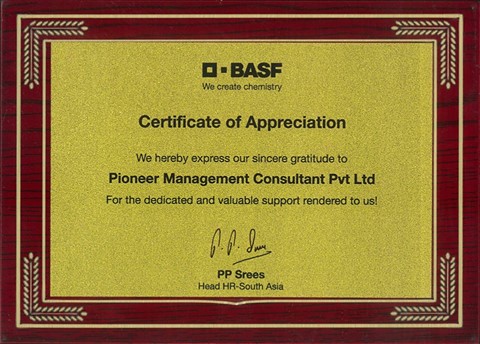Monday morning , Harish walked around his office sipping tea, moved from one work station to the other talking to his colleagues, flipped through various windows on his computer screen and made long phone calls. His leisurely pace indicated that there was not much work to be done. But his colleagues seemed utterly busy. Well it transpired from Harish’s conversations that he was serving his employment notice period with hardly a month to go.
“I am quitting to pursue my dream of not working here”
Perhaps most employees behave in a similar manner as they are about to jump ship after serving a company for years. But the views of experts vary when it comes to serving a notice period and the policies too may differ from company to company.
Objective of a Notice Period
A company asks you to serve a notice period because it requires time to work things out and find your replacement as you leave the position vacant. Companies start their hiring process, which may take a while, or figure out someone from the organization itself to replace you. The concept of a notice period exists for a smooth transition of work responsibilities from you to the new person who would be handling your position.
“Successful knowledge transfer involves neither computers nor documents but rather interactions between people”.
Ideally, a notice period should be a phase wherein you willingly handover your responsibilities to the new incumbent, delegate duties, help in knowledge transfer and update on issues that require attention. Coming in late to office or leaving early and showing a lack of interest in your work adversely affects the performance of those in your team.
The company pays you for the entire notice period, and hence they expect your best even if your motivation may wane. Besides, your years of relationship with your boss and colleagues gives you reason enough to be helpful and contribute to your team till your last day at work.
Your Attitude During your Employment Notice Period
“A person’s actions will tell you everything you need to know”. It is very important to respect the employment notice period .
With the increase in job opportunities employees have started devaluing their relationship with their employers. Their attitudes change as they are about to leave the company and hardly put in any effort at work during their notice period. Some employees even develop a negative approach owning either to their pent up emotions against the present organization or their eagerness to join the new one. This eventually displays only a lack of maturity and credibility.
A well-balanced person will refrain from such behaviour, which sets him apart from the crowd and builds his reputation in the market. So go up to your team, share your knowledge with them and train your replacement and walk out with a sense of fulfilment. At times, some companies exclude a person on notice period from important decisions. The reason being they feel it is of no relevance discussing future strategies with the one who would leave soon. This, however, should not build up negative emotions in the employee.
Apart from the employees, employers too should make an effort to make employees feel valued even when they are on a notice period.
Tackling a Long Employment Notice Period
If you happen to land a job in your dream company which asks you to join within 15 days while the clause in your current organization states that you serve one month notice period, what should be your next move?
As soon as you accept a job offer, pull out your current company’s appointment letter and flip through the pages of your employment contract. It will clearly state the notice period to be served. Also, it will mention the amount you have to pay in lieu of your notice period in case you leave early.
If you are requested to stay longer till a replacement is found go to your manager and discuss what should be your next course of action. Based on your relation with your manager or employer you can request them to relax your notice period. If they already have someone ready to take up your position or there is no urgency they may agree. However, if the company does not agree you can pay them an amount as per your contract agreement in lieu of the notice period.
Further, check your pending leaves and adjust whatever accumulated leaves you have against the notice period. You can work for the remaining days or pay for the same. For instance, if you have to serve a notice period of 30 days and you have 20 accumulated leaves, then either work for the remaining 10 days or pay for it as per the contract.
Some companies again have a clause which prohibits its employees from joining a direct competitor. In such cases you need to stick to the clause and discuss with the management in case of any variation.
Whatever you do keep the new employer updated about the situation in your current company. This will allow them to gear up for further action. In fact, they may pitch in and offer to buy out the notice period.
However, in any situation, do not abscond. Seek help from both the parties and leave only once the matter is resolved.
Garden Leave
Many companies adhere to the policy of “garden leave”, which requires an employee to leave the organization soon after they resign, mostly so when such employees handle crucial matters. But you can join the new company only once the notice period is over. However, in case the new company signs an agreement with your current one and buys out the notice period you are free to join the new company.
When Notice Periods Seem Risky
Many companies believe that it serves no purpose keeping an employee for three months on notice period. The employee looses the zeal to work since he has already made up his mind to leave. Besides, these companies tend to view these employees as outsiders since the trust factor diminishes. Information leakage is a fear too due to which many companies look forward to short notice periods. Most companies immediately remove employees on notice period from critical projects, especially if they are joining a competitor, even though they pay their salary.
Being Transparent
As you quit there starts a string of discussions among co-workers as to the reason of your resignation. People take no time to assume things and stories take no time to take the form of a rumour. Hence, if you wish to keep yourself clear of such gossips let everyone know that you are leaving on a good note. To the extent possible be transparent, which will curb unnecessary discussions as “rumours are like fire. No one admits to starting them and before you know it, they’re out of control”.
The Final Note - Balancing
When you are facing your HR for the exit interview keep your tone positive and emphasise on what you received from the company . You can add a few words where the company can work on without venting your frustration or anger. Let it be a good experience for you and the company as you bid them good bye. As you leave do not forget to leave behind a few words of appreciation for the people in the company who helped you reach where you stand. Express your genuine gratitude towards your team members, the management, your manager and whoever supported you even in the smallest of manner.
At the end what matters is the entire situation should be tackled maturely not allowing relations to go sour.
#careeradvice #employmentnoticeperiod #humanresource #best_advice #human_resource_related #career_advice #interview_tips #thenextlevel
By Sarla Sharma
Pioneer Management Consultant Pvt Ltd
Follow Us On Linkedin



Leave a comment